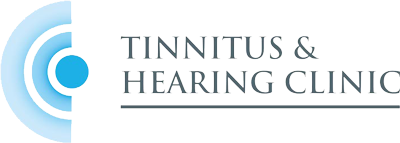The start of a New Year is a time for optimism, enthusiasm, and anticipation.
But at The Tinnitus Clinic we’ve started 2018 more energised even than usual thanks to the publication of some exciting new research.
Scientists in America have published a paper into the use of a current experimental device that ‘resets’ the brain cells in a small group of tinnitus sufferers.
The treatment involves presenting sounds matched to the individual’s tinnitus that they listen to daily through specialist headphones, with simultaneous mild electric pulses to the cheek or neck.
And the results of the combination approach of sound and nerve stimulation are encouraging – the treatment eliminated tinnitus in two people and made it less harsh and easier to ignore for a further 11.
As Dr Susan Shore, who led the research from the University of Michigan, said:
“If we can stop these signals, we can stop tinnitus. That is what our approach attempts to do, and we’re encouraged by these initial parallel results in animals and humans.”
This is important research by important researchers which supports our own philosophy of evidence-based tinnitus treatments like Acoustic CR® Neuromodulation treatment.
The Desyncra™ for Tinnitus system is a science-based therapy only available in the UK at The Tinnitus Clinic. In a similar way to the American device, reset neuromodulation therapy makes long-lasting changes to the patterns of activity in the part of the brain which produces the tinnitus, aiming to sustainably reduce the loudness and annoyance of the sounds.
Typically – and similarly – patients experience changes to their tinnitus sound within a few weeks of starting therapy.
And another way our treatment echoes the US trial is the sustained relief offered – the benefits last beyond the therapy period, with seven out of 10 getting significant relief from the worst of their symptoms.
It’s always exciting to read about novel ways of treating tinnitus but the US research paper must, of course, be put in perspective. We must remember the current experimental device is not commercially available yet and was tested on a very small group of tinnitus sufferers with specific symptoms (those who can temporarily alter their tinnitus symptoms by clenching their jaws, extending their tongues, or turning or flexing their necks).
However, if it CAN work with this small group, when looking ahead to extended treatments in ten years’ time this means it could potentially work with ALL types of tinnitus, as Dr Shore anticipates.
And that’s a very optimistic note indeed to begin the year on!
*‘Auditory-somatosensory bimodal stimulation desynchronizes brain circuitry to reduce tinnitus in guinea pigs and humans’ by Kendra L. Marks, David T. Martel, Calvin Wu, Gregory J. Basura, Larry E. Roberts,Kara C. Schvartz-Leyzac, Susan E. Shore – research article published in Science Translational




